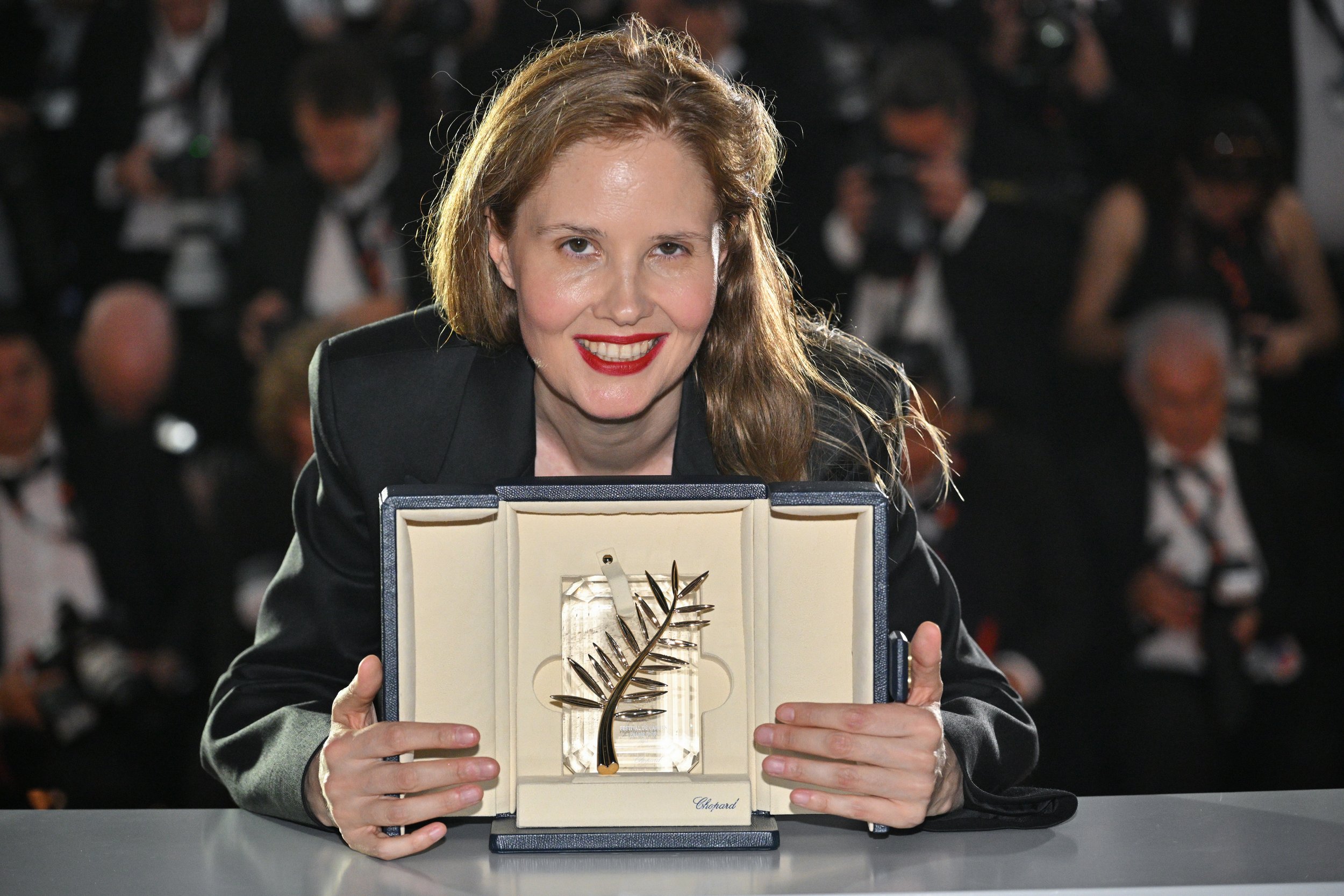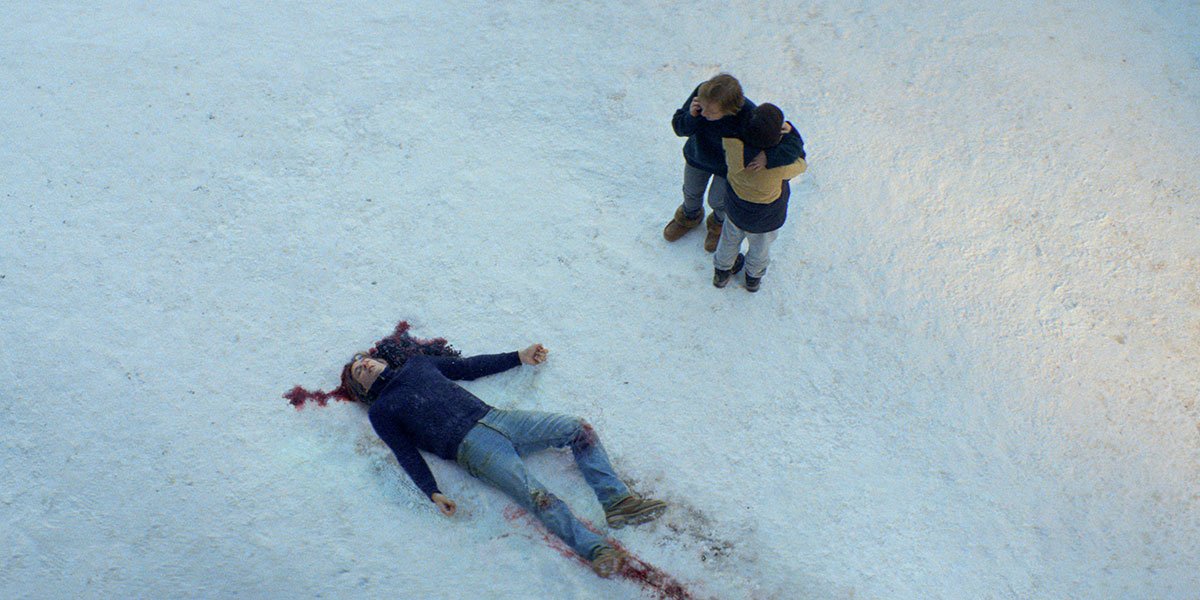'Anatomy of a Fall' Review: A Mystery that Questions the Importance of Truth [TIFF 2023]
A perfect script depicts a mystery turned courtroom drama layered with dysfunction and obsession, with sandra hüller’s extraordinary acting at the centre.
Every year, TIFF works to put a spotlight on the year’s best titles, and with Justine Triet’s Anatomy of a Fall winning Cannes’ Palme d’Or, this was a greatly anticipated watch. Cannes’ last several Palme d’Or winners have also gained a lot of excitement, and have each been quite successful – for example, the last three winners, Triangle of Sadness (2022), Titane (2021), and Parasite (2019), have been praised by critics and film-lovers alike, collecting fans at subsequent festivals. Through and through, Anatomy of a Fall follows this pattern as a masterful film – an intricate, careful, and quiet screenplay brought to life by phenomenal acting from all parties involved.
The plot revolves around successful German writer named Sandra, played by the uber-talented award-winning Sandra Hüller, dealing with the unfolding investigation after her husband, Samuel (played by Samuel Theis), is found dead outside of their isolated home in the French Alps. After his body is discovered by their son, Daniel (played by Milo Machado Graner), while on the way home from walking his dog, the family is launched into a new world, with suspicion almost immediately falling on Sandra. Initially, the death appears to be an accident, suggesting Samuel had fallen out of an upstairs window while renovating the home, but once police arrive and an inspection begins, the cause of death becomes a little less straightforward. With wife Sandra the only one home, skeptical eyes turn to her.
While her son struggles with grief and what he saw, trying to collect the appropriate memories, Sandra is preparing for the worst with lawyer Vincent (Swann Arlaud). A tense relationship begins to build between mother and son, and as the viewer learns more about the family and the couple’s life together, what seems to be a simple accident turns into something much more questionable.
From the opening scene, the viewer is scrambling to understand what is happening, what the dynamic between characters is, and what could happen. Not only does the film mimic a realistic whodunnit, but it dissects a couple’s relationship, exposing their most intimate moments in the sterile, public environment of a courtroom. Personal details are exploited for dramatization, including secrets, sexuality, and burning jealousy. Sandra has to struggle with the exposure, and accompanying humiliation, along with the court’s scrutiny of her and her degrading relationship with her son.
As previously mentioned, the acting throughout this film is unbelievably good, with Hüller giving the performance of a lifetime. She becomes the character, and from the beginning to the end of the film, is an endless vessel of emotion and conflict, both inside and out. Hüller is supported by Graner, whose pure emotion and torment becomes all-consuming for both himself and the viewer, and Arlaud, who was fantastic as a lawyer with debatable ethics. While Theis is not present for a vast majority of this film’s lengthy 150-minute runtime, he’s fantastic in a particular scene, assisting Hüller in painting a painfully honest depiction of their dysfunctional relationship. It would be remiss to not mention Snoop, Daniel’s dog, who brings a real heart to the film and secured the Palm Dog Award from Cannes Film Festival (awarded to the best performance by a canine).
Further, the use of language and identity in this film is vital to the story and brings another level of nuance and intrigue. Sandra is a German woman, displaced in France and living in her late husband’s hometown where she speaks English as a self-proclaimed middle ground. Her son grows up speaking French, encouraged by his father, despite his mother being most comfortable in a completely different language. In her dealings with police and court officials, she is sometimes encouraged, sometimes instructed to speak French, a language she seems to have an aversion to. Her deepest thoughts may not be able to be conveyed through this language, but when it is a necessity, what can be done? The film explores what language is and how relationships are built both around it and through it. How language is tied to identity and individuality is an important theme for Sandra’s characterization and her role as both mother and wife.
This film feels like a well-written novel, but uniquely, the viewer does not know the truth. As a viewer, you’ll follow Sandra’s story and consider all factors, similar to a judge, without getting that secret objective truth often shown in courtroom dramas and murder mysteries. The vagueness is ominous at times, but it successfully allows the film to take on a puzzle-like form. The viewer is asked: When can an objective truth really be established? Can it ever be, and does it matter? Anatomy of a Fall is a must-watch, and unlike many films focusing on a mystery, is completely rewatchable.



